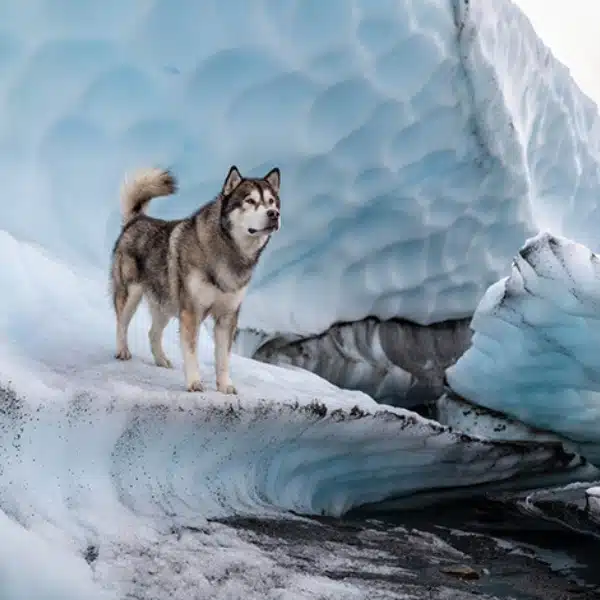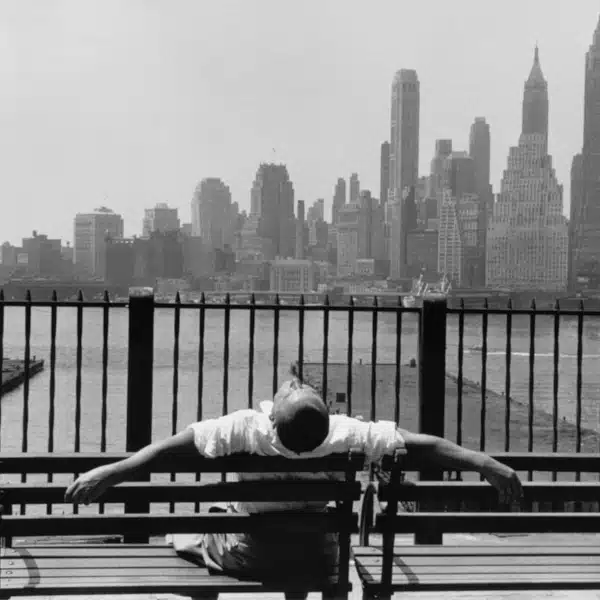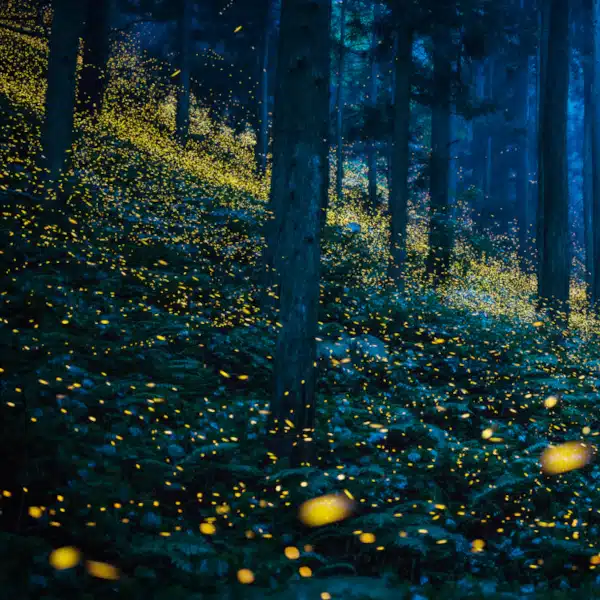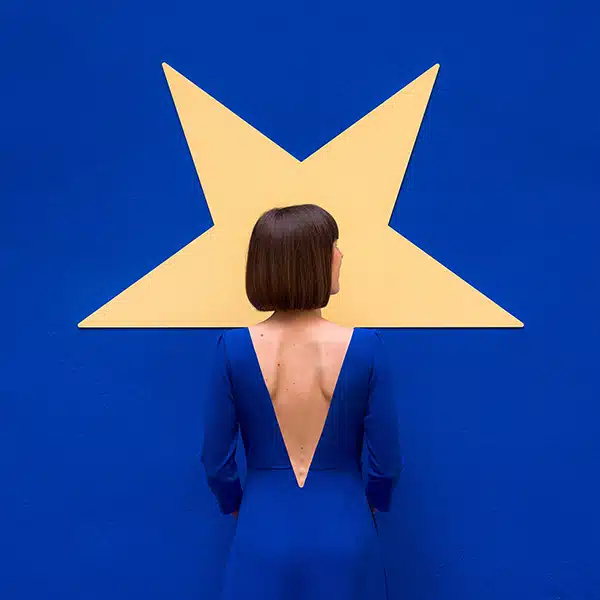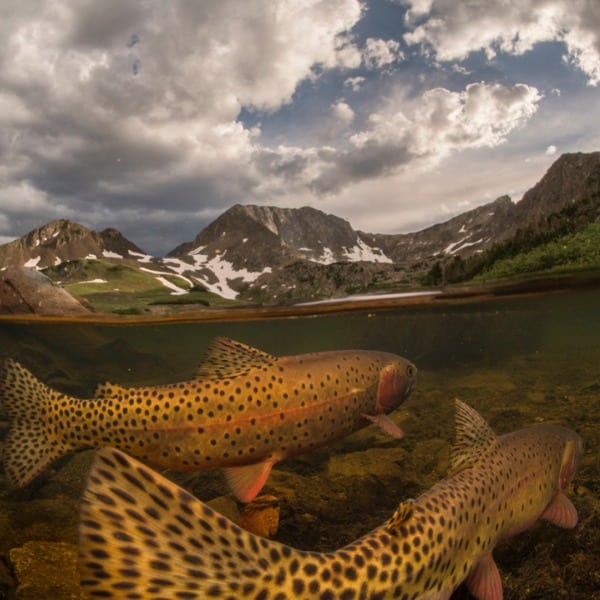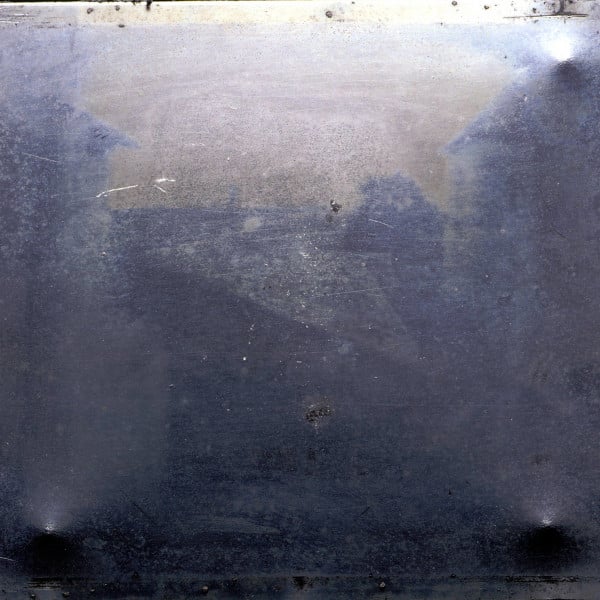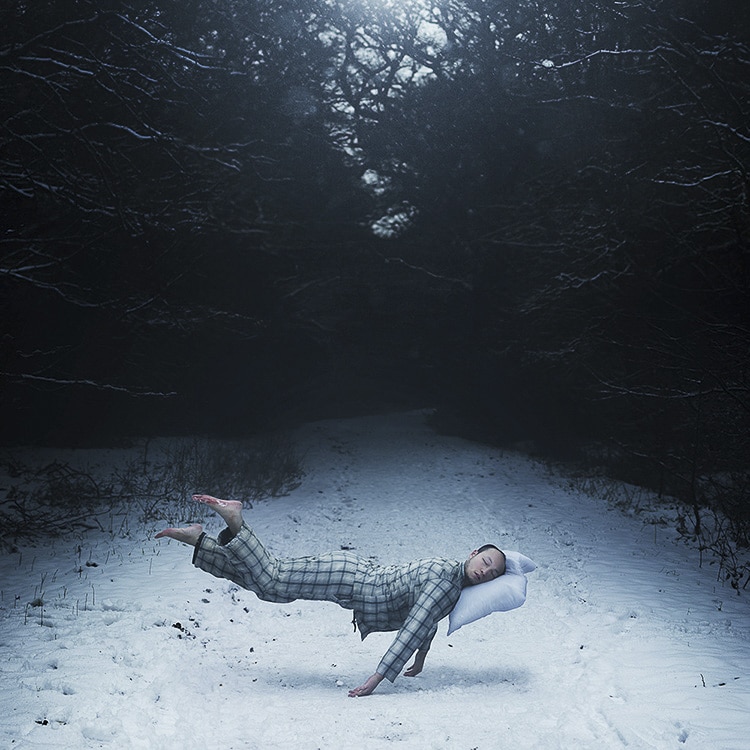
This post may contain affiliate links. If you make a purchase, My Modern Met may earn an affiliate commission. Please read our disclosure for more info.
Photographer Simon McCheung fell into photography on a whim after purchasing a DSLR camera. Once he taught himself the craft, he amassed an impressive portfolio of surreal images. With each photo, Simon strikes a balance between intense human emotion and the tranquil world around him. The results are the embodiment of childhood daydreams with a little dose of magic.
We were grateful to catch a glimpse of Simon's creative process with a Behind The Lens look into his portrait photography!
Learn how Simon McCheung captures his surreal digital photography in our exclusive interview below!
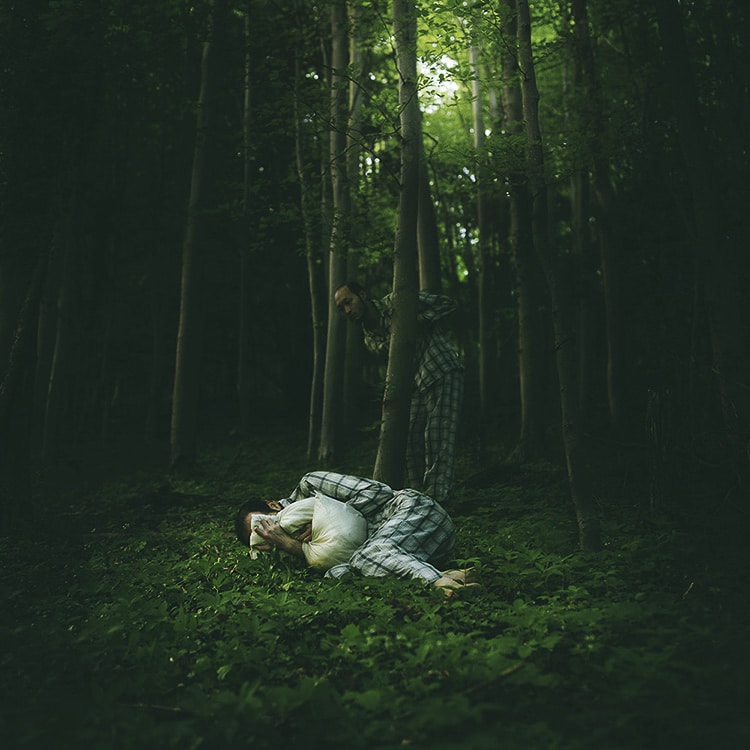
Can you tell us a bit about your journey into photography?
As a teen, painting was my creative outlet, but I never carried that through because of living space limitations within the city of London. When I took on a job located in the English countryside of the Midlands, a work colleague introduced me to his new DSLR. I instantly got hooked on this new creative outlet.
You are self taught photographer, how did you go about learning how to take and process photos?
I purchased my DSLR on a whim, and my knowledge of camera settings were almost non-existent. I knew I wanted certain qualities for my images, so it was just a case of looking up the basics online and a lot of trial and error by shooting every day. The challenge is understanding your lighting in the environment, and then quickly switching your aperture and speed accordingly.
I also feel that shooting with real props within the shot rather than super-imposing these later in post-production gives a far more believable quality to the overall image. So whenever I can, I will try to find ways to ‘smoke and mirror' in the actual shot and I've resorted to research into old cinema tricks that give that sort of charm to the image, such as Le Voyage Dans La Lune by George Méliès.
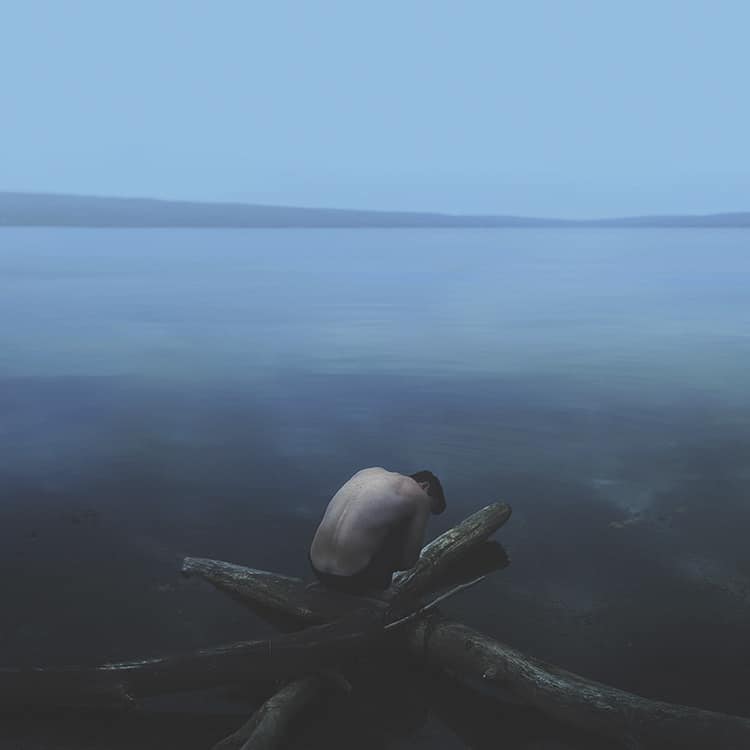
Your portfolio is full of stories and surreal themes, what inspires your creative process?
With my older work I drew inspiration from childhood day dreams, emotional memories, and my love of the Renaissance art period. My process for these images were planned out beforehand. I would put the idea down on paper, and then search for props and a suitable location.
The process of my more recent work is more inward. The location and whatever objects are at hand become the creative initiation for my stories. I think my process evolved because I became more aware of my surroundings. And so I can better notice, appreciate, and reap the benefits of nature's stage.
How do you choose your models?
I tend to choose models who feel more natural as actors than posers. I want my images to feel very believable, like a still from a film. This is so the audience can relate to the image, even when it's particularly surreal.
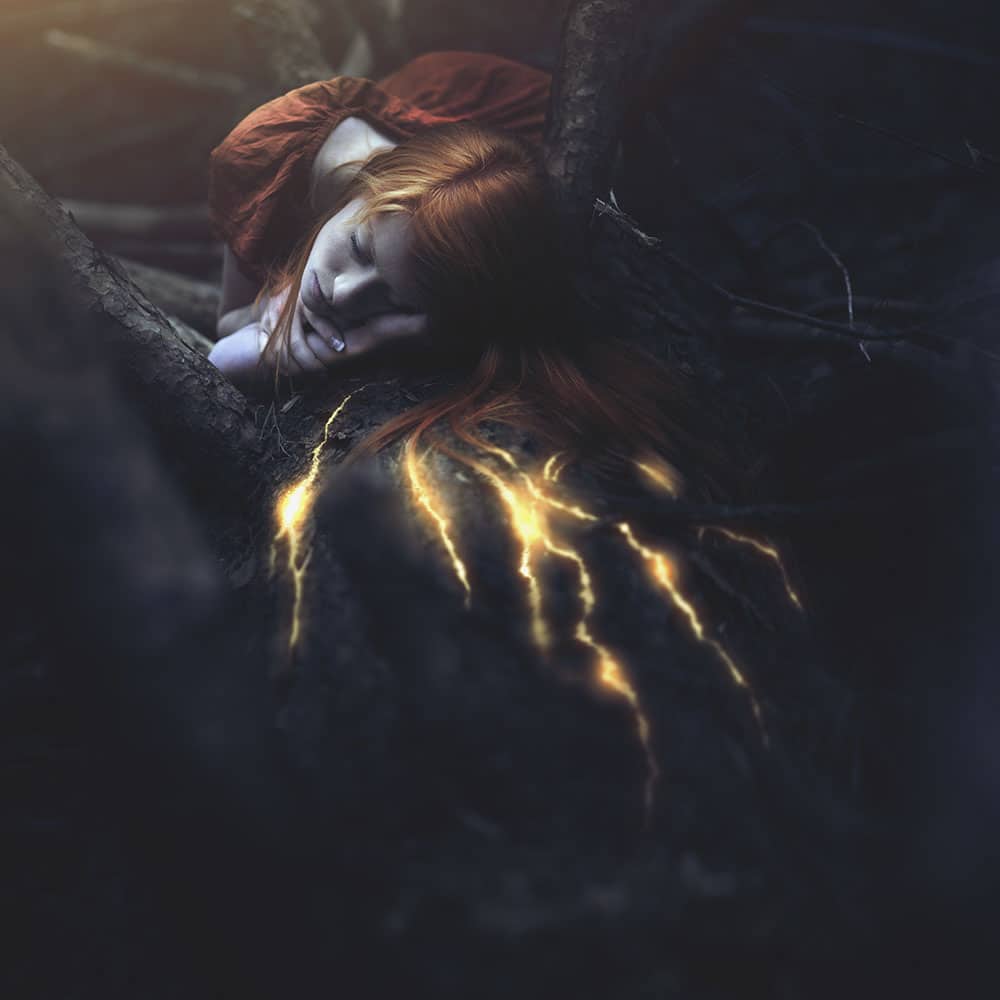
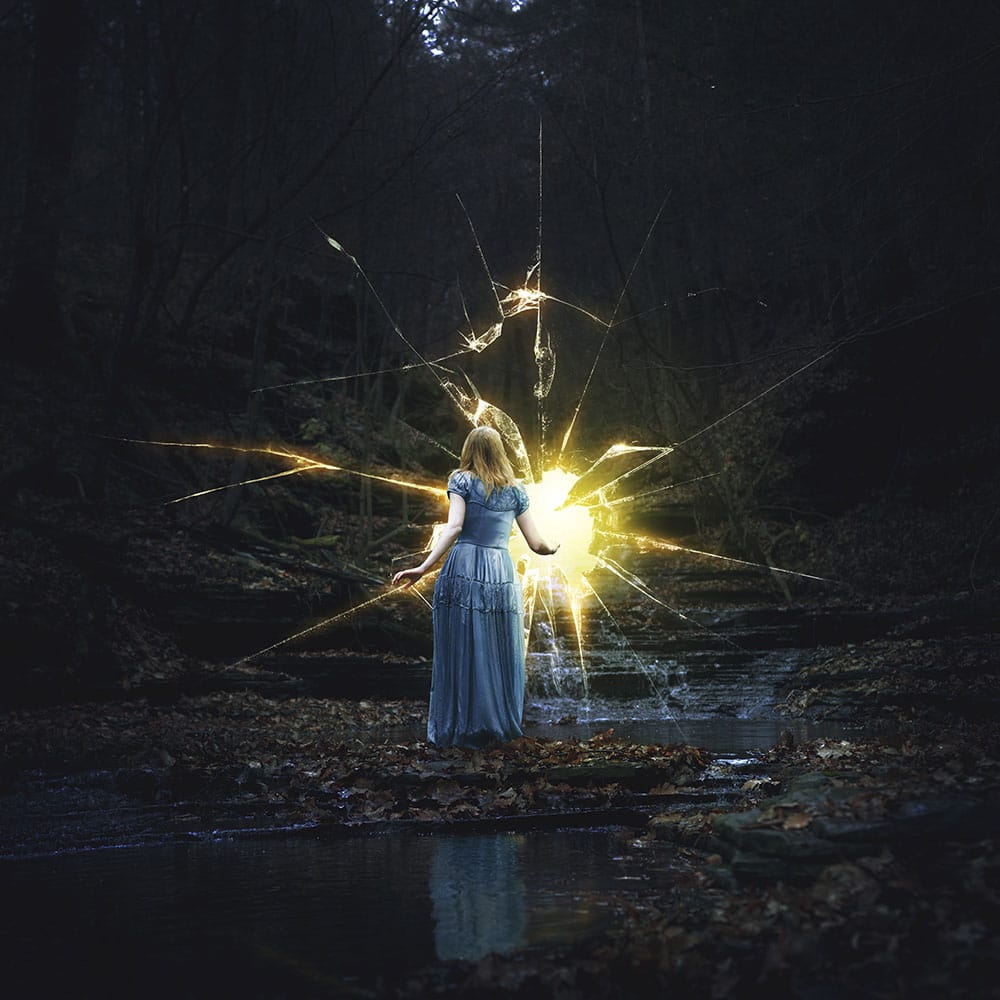
You’ve attended meetups with fellow photographers all over the globe, has meeting other creatives changed the way you work?
I wouldn't say “changed” but connecting with like-minded creatives has added to my repertoire of knowledge, and refined certain techniques. The thing that I enjoyed the most from those meetups is the bond that is formed. Meeting people who have the same passion, fuels your enthusiasm in more meaningful ways than just through social media.
To you, what are the qualities that make a perfect shot?
The photo has to be memorable. I have seen countless images that demonstrate wonderful technique and skill, but don't leave a lasting impression. If after a few days the photo is forgotten, perfect technique won't convince people that the image itself is perfect.
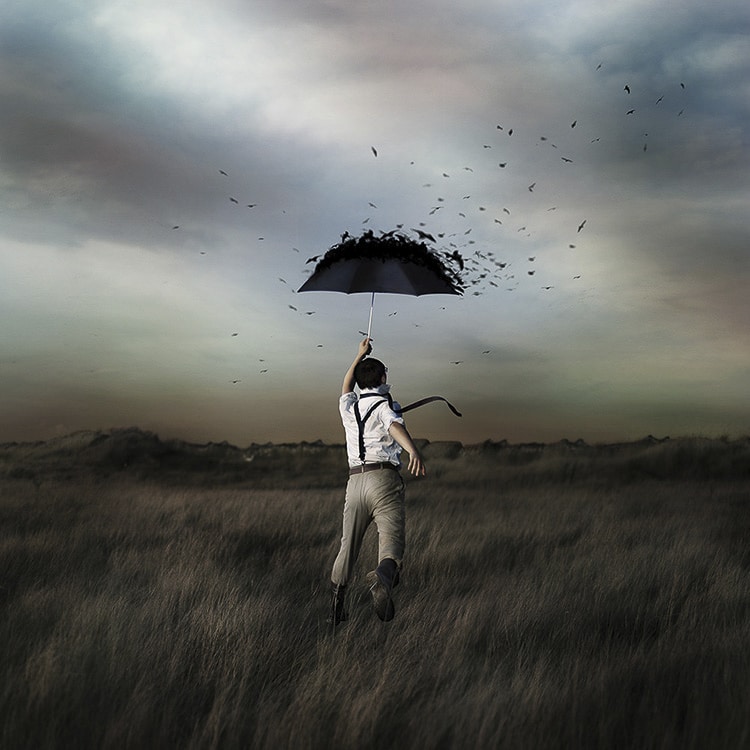
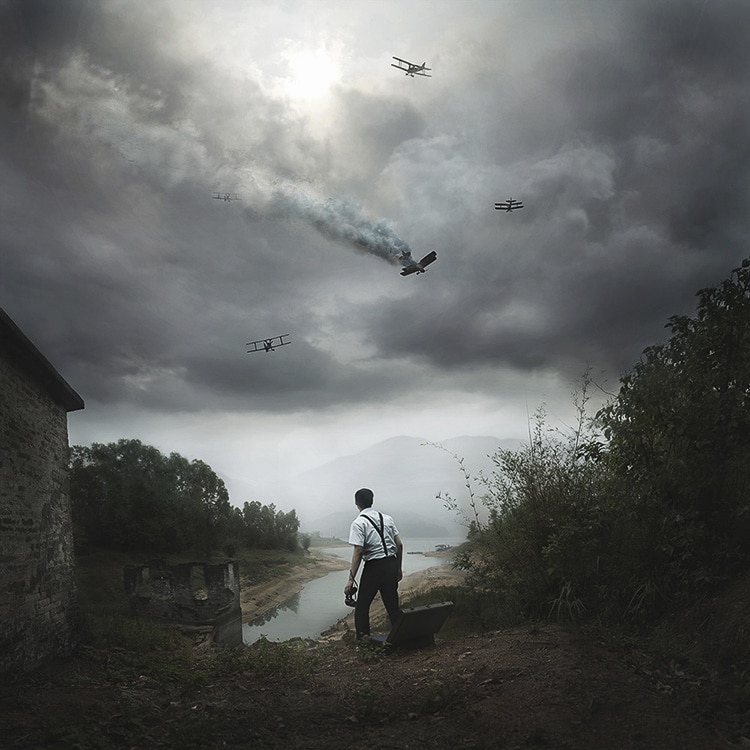
How has picking up photography impacted your life?
Photography wasn't my main source of income, so I had to find time to fit it into my normal day. As my passion for creating grew, I started to compromise on other aspects of my life in order to fit in more photography. I was frantically striving for images that created impact and meaning for me. However, this became quite unhealthy and I didn't realize the damage I was doing to my body. Eventually I had to stop and take a reflective look at my lifestyle. I'm glad to say that I'm in a happier and more balanced place now.
I don't regret picking up photography because it became the outlet that I was longing for. The doors that have opened since I began my journey are opportunities that I never dreamed I'd have.
In your series Interstellar, you explored emotion with stories of new worlds in what looked to be Iceland. Can you tell us a bit more about this series?
Of course! Interstellar was created about the issue of climate change, but it's also about connecting your inner senses to nature.
I went to Iceland knowing that it's a country that is filled with beautiful and almost alien landscapes. I had a loose narrative about an astronaut exploring new worlds, so I carried a glass bubble fish bowl (as the astronaut's helmet) all the way from England. When I got to Iceland, I started connecting with the locals. In conversations, I began to realize that there was a growing concern about climate change affecting the Local's livelihoods, as well as the beautiful landscapes. These encounters were profound to me. The issue of global warming suddenly became very real, and it hit me how these glacial, gentle giants of nature, could soon disappear.
The astronaut's glass, bubble helmet became a metaphor for society “living inside a bubble” when it comes to this issue. The world ignores the urgent and current events that will affect our future on Earth. We prefer to live comfortably and bury our heads in social media.
The ten part image series shows the astronaut on his own planet, but he does not realize this because his perception is obscured by the bubble. He sees the world as alien. When the bubble eventually cracks, the character is forced to rely on his own eyes, and is finally able to see the truth about his own beautiful planet.
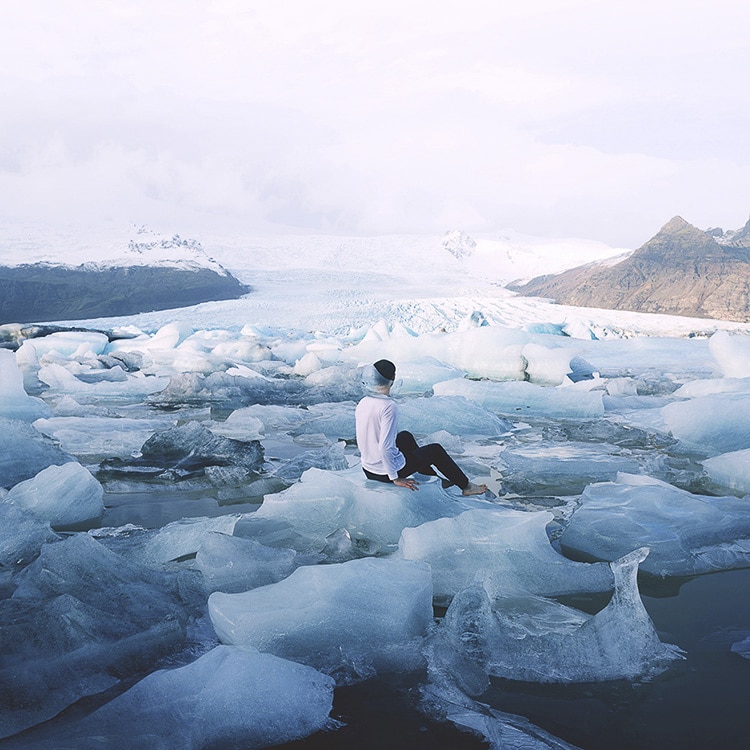
From the Interstellar series.
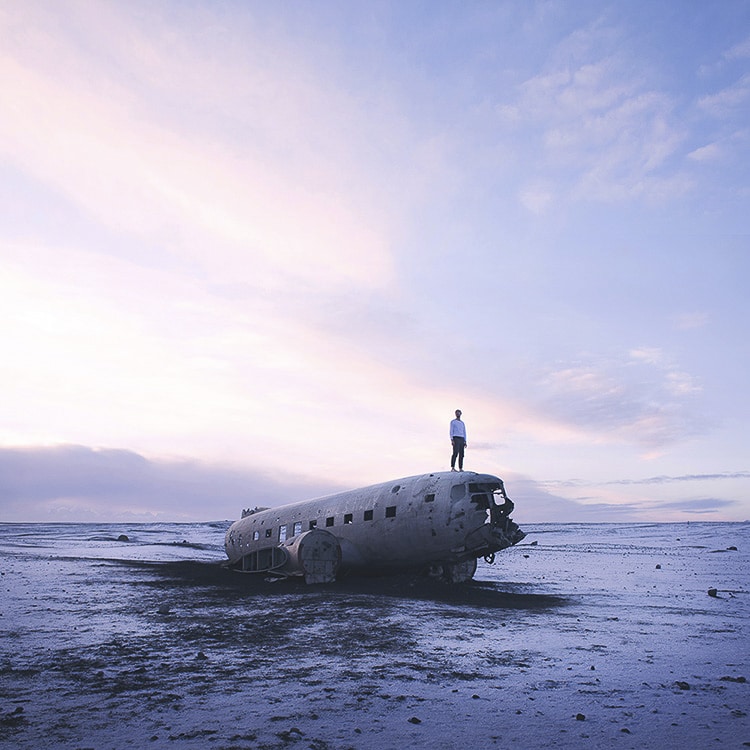
From the Interstellar series.
From conceptualizing to post processes, how much planning goes into a shoot?
I used to plan my ideas days in advance, with ideas drawn on pen and paper. Then search for suitable props and scout for locations and models. Now the process is more spontaneous, since I travel a lot. So the unexpected locations seems to initiate the ideas for me. More recently I have been reflective of current events; I created the image “Heal” after the London Bridge attack.
How do you light your photos? Do you use artificial or natural light?
I do have a strobe light, but I've only ever used it a few times to capture fast moving subjects. The rest is natural light, because I want believability in my images, and what is more believable than real, natural sun light?
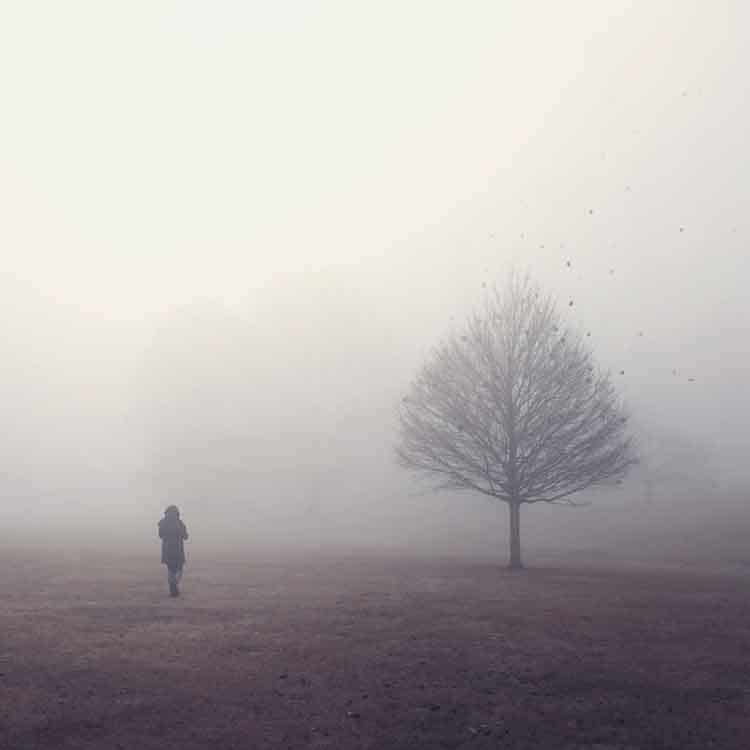
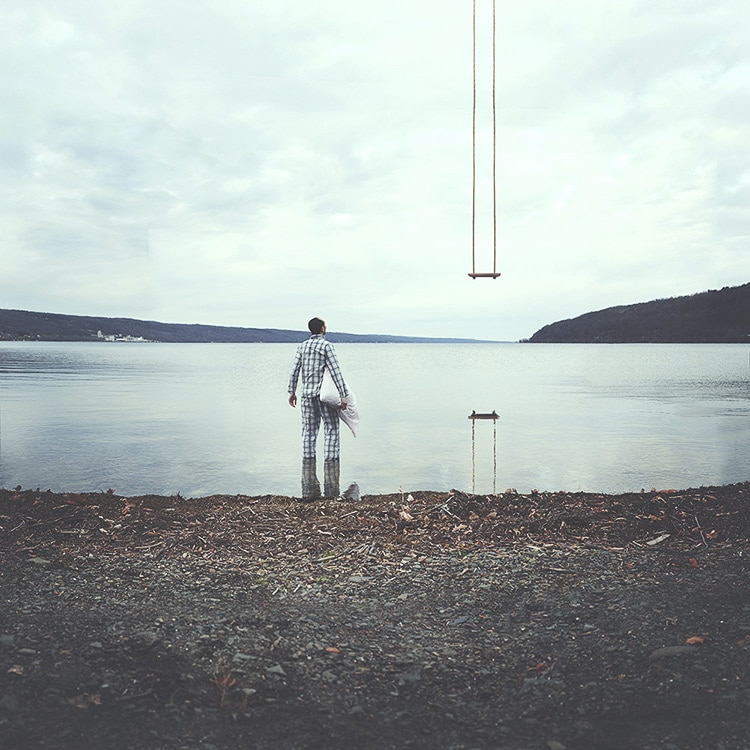
What has been your favorite shooting location?
Forests, beaches, fields, and anywhere that is open but secluded. This way I can take my time to stage my shot. However I would like to challenge myself to take more images in urban areas, because they don't have a lot of natural light to work with. So it keeps things interesting and exciting to explore.
How would you define your style?
Arty and sensorial.
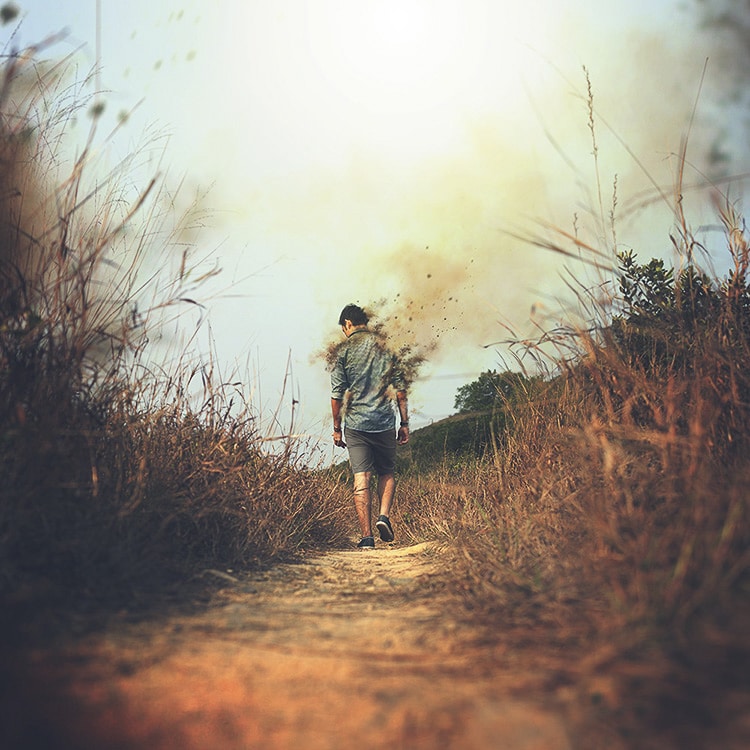
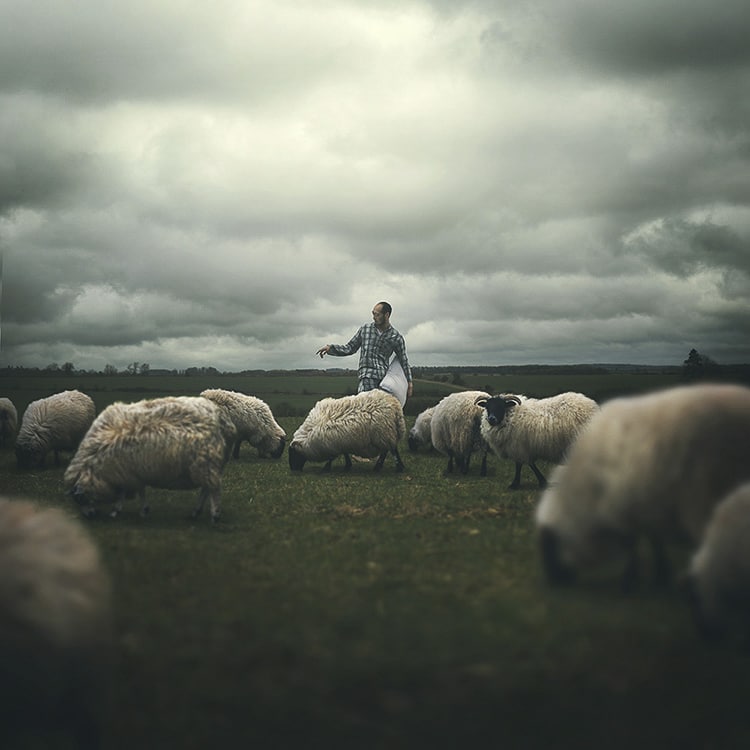
Is there an overall message you would like your photos convey?
As you can probably see, a lot of my images don't relate directly to each other. However, there is an underlying premise throughout, that aims to engage the audience and embrace their senses.
What challenges have you faced while creating?
I fell into a formulated method of shooting and processing images, that made me pause my output for a while. I stopped getting that excitement of the unknown. So the challenge I face now has been my reinvention, and how can I uncover another, exciting layer of myself.
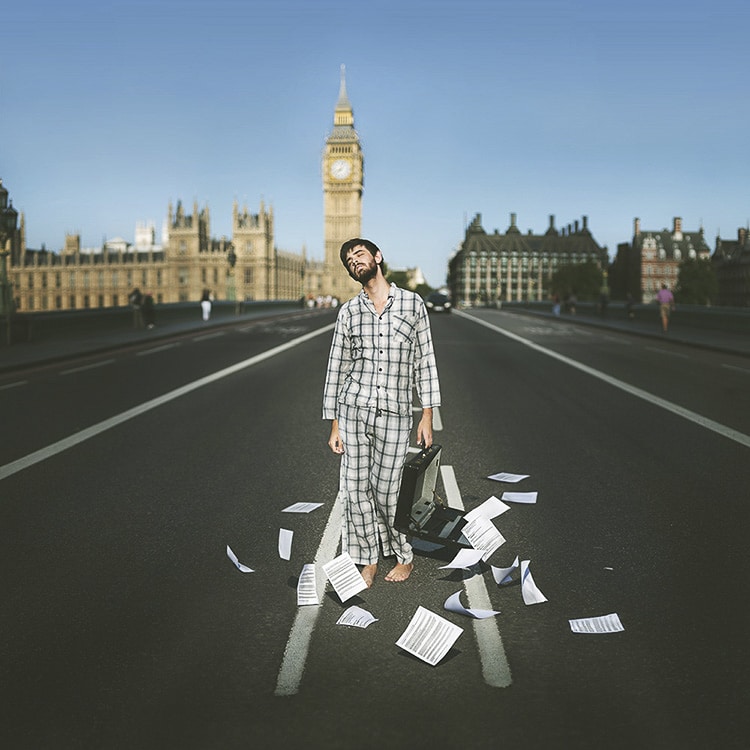
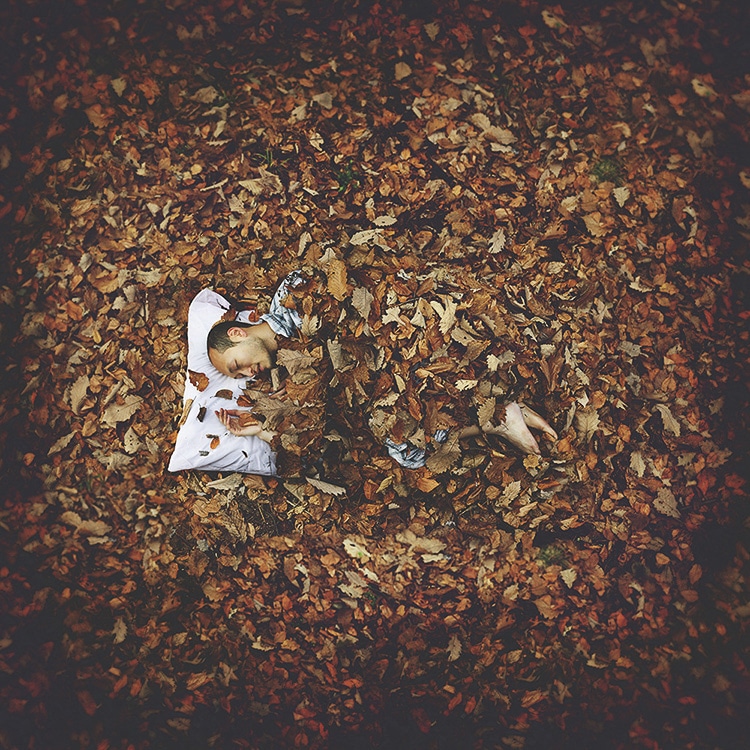
What's a must have in your gear bag? How important is gear to you?
Canon 5D Mk3 camera, 50mm f1.4, 28mm f1.8 and Vanguard Veo Tripod. Snacks, water and some spare phone batteries because I once got lost in a forest on a snowy day and it wasn't that fun. Also blankets and chocolates for your models.
How much post processing goes into a completed photo?
I used to do a ton, because of the complexity of super-imposing other images into my main image. Recently the process has been reduced to only a few curve adjustments. I think I appreciate what's in front of me a lot more than before, and simplicity has been a key theme that I want to keep in future images.
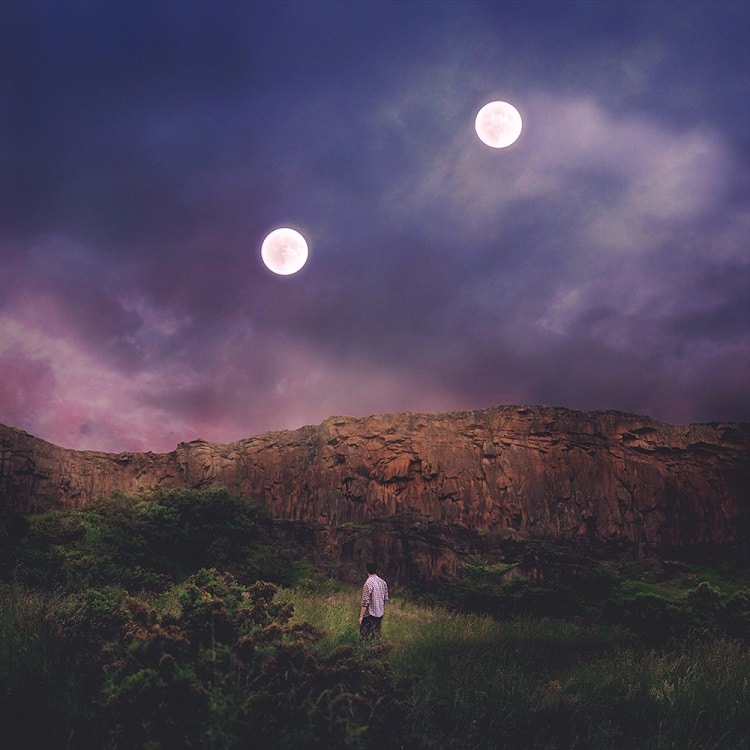
What are your plans for the future? Do you have any upcoming projects?
Despite what I mentioned earlier about not planning ahead, there is one project that I've been meaning to get off the ground for a long time. It's a tribute to my younger sister who is autistic. I feel society as a whole doesn't really understand Autism, and the subject often gets generalized to a few symptoms. It is a complex disorder and it's hard to describe it with words. This is why I want to use imagery, and my underlying theme of sensorial connection, to engage the audience. Hopefully, so they can acquire a deeper and more meaningful understanding of autism.
Do you have any advice for aspiring photographers?
Don't be afraid to drop an image midway through your process if your gut tells you it ain't working. It's more time efficient to start afresh on an image that aligns with what you want to create. Also, when you get to a place where your photography is taking you somewhere, it's important to strike a balance between photography and your daily life. I see lots of talented photographers who start out great, but then get burnt out. Don't underestimate the work required to follow through on your initial success. This could mean updating your social media presence, or juggling too many clients at once. If your happiness is at risk, then it's time to pause and reflect on why photography made you happy in the first place. Don't feel ashamed to take time to back paddle. It's well worth the happiness that you're going to relive again.
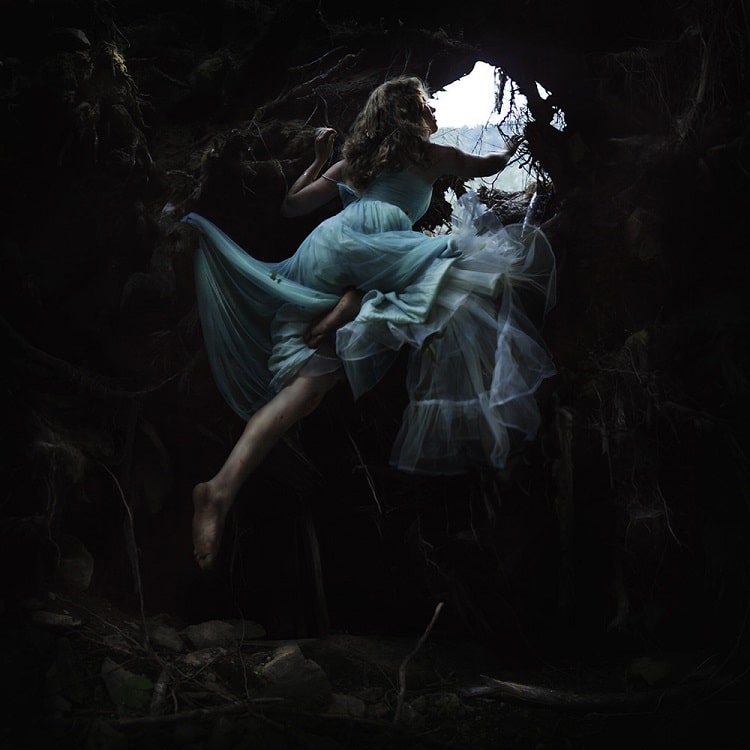
Simon McCheung: Facebook | Instagram | Society6 | Behance
My Modern Met granted permission to use images by Simon McCheung.
Are you a photographer who would like to be interviewed for our Behind the Lens series? Submit through our contact page for consideration!
Related Articles:
Interview: Self-Taught Photographer Brings Her Imagination to Life in Stylishly Surreal Portraits
Photographer Brings Russian Fairy Tales to Life in Artistic Portraits
Photographer with Insomnia Spends Nights Wandering the Empty, Neon-Lit Streets
Interview: Photographer Captures Candid Color Images to Authentically Define City Life











































































